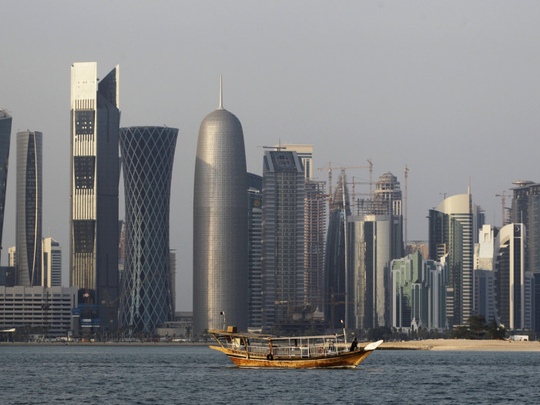
The Qatari leadership relies on the Iranian and Turkish support to keep itself afloat during the standoff with Saudi Arabia, the UAE, Bahrain and Egypt. Doha’s refusal to respond to the demands of the anti-terror quartet and rectify its mistakes in backing terrorism have unduly prolonged the crisis.
Iranian efforts to prop up Qatar have been hardly surprising, considering their close ties. And Tehran has never missed an opportunity to turn the Gulf state against fellow Arabs in the region.
Since the inception of the Gulf Cooperation Council (GCC) in 1981, Qatar has sought to undermine the bloc by persuading some members to leave or freeze their membership in the council in a bid to reduce its effectiveness. It also actively attempted to bring them under the Iranian influence.
Iran has always used Qatar’s regime as a Trojan horse to infiltrate and undermine the GCC. Its strategy has been simple: Destroy the GCC and replace it with an alternative council that includes Tehran. But its attempts to polarise the Gulf states have never worked.
Tehran’s repeated attempts to break up the GCC come as no surprise. In the current crisis too, the former Qatari emir, Shaikh Hamad Bin Khalifa Al Thani, in a leaked statement, is reported to have accused GCC countries, not Iran, of posing a threat to Qatar.
Doha shares strategic interests with Iran, especially the natural gasfields in the North Sea. Since GCC countries also share trade relations with Iran, Qatar’s preference for Tehran at the expense of the GCC is perplexing. Qatar claims it does not enjoy undue advantages in the trade with Iran. It also alleges that other GCC countries want to wreck Qatar’s ties with Tehran.
These allegations are unfounded. The quartet has not called for a cessation of trade relations with Iran. It merely called for downgrading ties with Tehran, which interferes in the internal affairs of Gulf states, besides fomenting terror in Iraq, Yemen, Syria and Lebanon.
Qatar’s trade links with Iran will not harm GCC countries so long as it conforms to international rules and regulations. What is worrying is Qatar’s tendency to work secretly to plot against GCC countries. While Doha actively participated in the Arab alliance to help restore the legitimate government of Abd Rabbo Mansour Hadi in Yemen, it is believed to have leaked information on the location of coalition forces to Iran’s allies — Al Houthi militias and other militias allied with the ousted president Ali Abdullah Saleh. The information helped launch major attacks on the Gulf forces, resulting in heavy casualties.
The Qatari Emir, Shaikh Tamim Bin Hamad Al Thani, should ask himself: How long will the Iranian support last? Can he trust the Islamic republic? Apparently, Qatar fears for its natural gasfields, considering its proximity to Iran. That must be one of the more compelling reasons to ally with Tehran. Iran has fully exploited Doha’s naivete. The warm relationship helps Iran pull the tiny Gulf state into its sphere of influence. And Qatar becomes a party to Iran’s nefarious activities in the region. It taps Doha’s wealth to fund terror groups in the region, keeping alive the sectarian strife in Yemen, Syria, Iraq and Libya.
Qatar naturally gains some satisfaction from the strife as it enables the tiny state to punch above its weight. It helps feed its ego and cultivate the image of a key player in the region. But at what cost? Doha has indeed lost the trust of its friends and neighbours by repeatedly reneging on promises to clean up its act. That’s a huge price to pay.
Dr Salem Al Ketbi is an Emirati political analyst, researcher and opinion writer.









